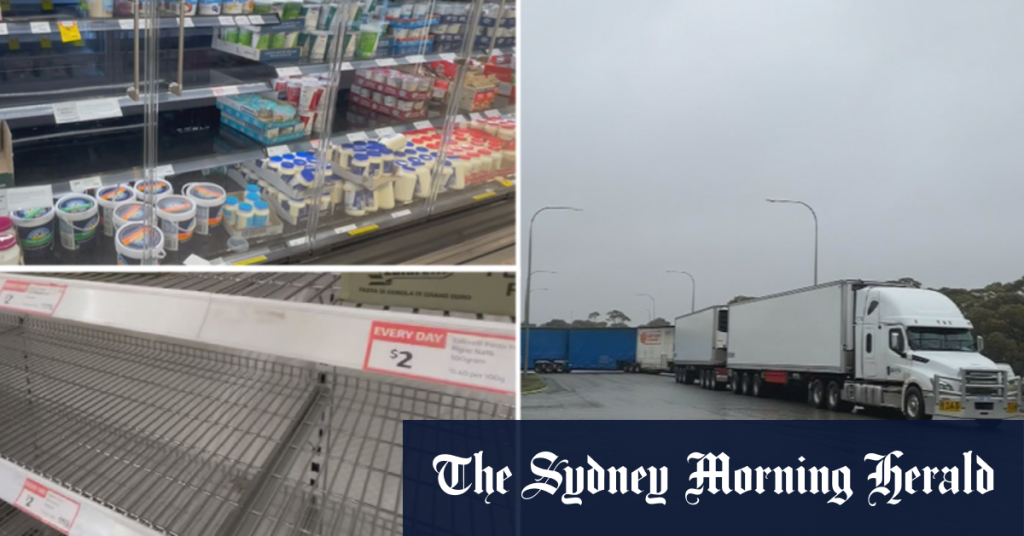Supply chain issues have been causing supermarket shelves to go bare, leaving consumers frustrated and worried about access to essential goods. Both Coles and Woolworths are working to address the shortages and are promising a full restock in the coming days. The disruptions in the supply chain have been attributed to various factors, including transportation delays, labor shortages, and increased demand due to panic buying. These issues have been exacerbated by the ongoing global pandemic and its impact on industries worldwide.
Consumers have been noticing the empty shelves in supermarkets and have been expressing concern over the availability of essential items such as food, household products, and toiletries. The sudden surge in demand has put a strain on the supply chain, leading to delays in restocking and delivery. This has created a sense of urgency among shoppers, with many resorting to stockpiling and bulk buying in anticipation of further shortages. Coles and Woolworths are assuring customers that they are working tirelessly to address the supply chain issues and replenish their stock as quickly as possible.
The disruptions in the supply chain have been a major challenge for supermarkets and other retailers, who rely on a smooth flow of goods to meet customer demand. The delays in transportation and distribution have impacted the availability of various products, causing frustration among consumers and highlighting the vulnerabilities in the supply chain system. Companies are exploring alternative solutions to mitigate the impact of these disruptions, such as prioritizing the delivery of essential items and working with suppliers to expedite the restocking process.
The global pandemic has played a significant role in exacerbating the supply chain issues, as lockdowns, restrictions, and disruptions in production have disrupted the normal flow of goods and services. The increased demand for certain products, coupled with labor shortages and transportation delays, has created a perfect storm that has left supermarket shelves bare. Consumers are urged to remain calm and patient as retailers work to address the challenges and ensure that essential items are available to everyone. Coles and Woolworths are working closely with their suppliers and logistics partners to expedite the restocking process and minimize the impact on customers.
In response to the supply chain issues, supermarkets have implemented measures such as limiting the number of items that customers can purchase to prevent stockpiling and ensure that everyone has access to essential goods. These measures are meant to address the immediate challenges and prevent further disruptions in the supply chain. Additionally, companies are exploring long-term solutions to improve the resilience and efficiency of the supply chain system, including investing in technology, streamlining processes, and diversifying sourcing options. The goal is to create a more robust and agile supply chain that can better withstand external shocks and disruptions.
Overall, the current supply chain issues have highlighted the importance of a well-functioning and resilient supply chain system in ensuring the availability of essential goods and services to consumers. The challenges faced by supermarkets and retailers in restocking their shelves have underscored the vulnerabilities in the global supply chain and the need for proactive measures to address potential disruptions in the future. As Coles and Woolworths work to replenish their stock and address the immediate challenges, it is crucial for all stakeholders to collaborate and innovate to build a more resilient and responsive supply chain system that can better withstand future shocks and ensure the continuity of essential services.


